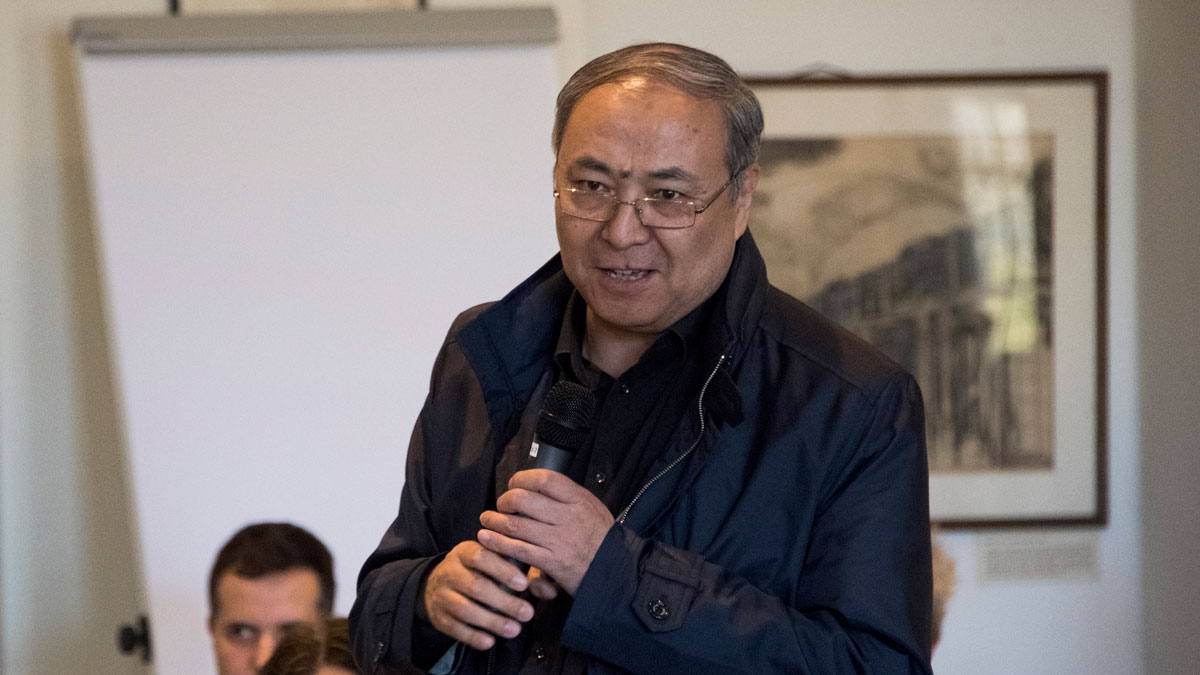
Chao Gejin, a senior researcher at the Chinese Academy of Social Sciences, at Salzburg Global Seminar
When it comes to societal advancement, Chao Gejin argues there are “at least two wheels to bring human civilization… forward: literacy and orality.”
Chao is a senior researcher and director of the Institute of Ethnic Literature at the Chinese Academy of Social Sciences. He also serves on the board of other institutions focusing on folklore or oral traditions.
He leads an archive that collects oral traditions from marginalized societies - “one of the biggest in China,” Chao said.
He attended the Salzburg Global Seminar program, What Future for Cultural Heritage? Perceptions, Problematics, and Potential, which took place from March 16 to March 21 at Schloss Leopoldskron, in Salzburg.
How did Chao’s work come about? He said, “At the very beginning, I worked on contemporary modern literature. I composed some papers about some novelists in China…. then I gradually realized that those oral traditions in especially minority peoples are declining rapidly.” This led to a shift in his career to focus on preserving these oral traditions.
His recent focus has been on preserving Mongolian oral traditions, interviewing others who use languages which don’t have a written form.
While tangible cultural heritage has been historically promoted and studied over the years, intangible cultural heritage, including oral tradition, has received less of a focus.
He said, “We really need to take this part of the knowledge seriously… UNESCO launched this Intangible Cultural Heritage campaign; it is to try to make things correct.
“In many countries, folklore is not a discipline. It's not a core program. In most of the universities in Europe …. you cannot find any programs on folklore.
“In North America, it's OK. In India, China, Estonia, Japan, and some other countries, it's developed quite well. But on the other side of the world? No. We need to bring some new ideas to make people aware this living oral tradition is so important.”
How would Chao suggest his fellow participants become more aware of intangible culture and oral tradition? It’s about recognizing global illiteracy.
He said, “Oral tradition, generally speaking, is as important as literacy. [It] contains enormous information of humankind in many forms. Furthermore, for many peoples, oral tradition is the only information technology they have to deliver messages from generation to generation.
“I think it's very important for today's academia to [be] aware that in today's world about 7,000 to 10,000 languages are spoken on this planet and most of them without writing.
“For these people, you talk to them, exchange ideas or try to persuade them things, or try to have a dialogue with them…”
Apr 12, 2019
by Lucy Browett
Source: https://www.salzburgglobal.org
Add.: FL-11, West Wing, 5 Jiannei Dajie, Beijing 100732, P. R. CHINA
Tel.: +86-10-85196041 Fax.: +86-10-65134585